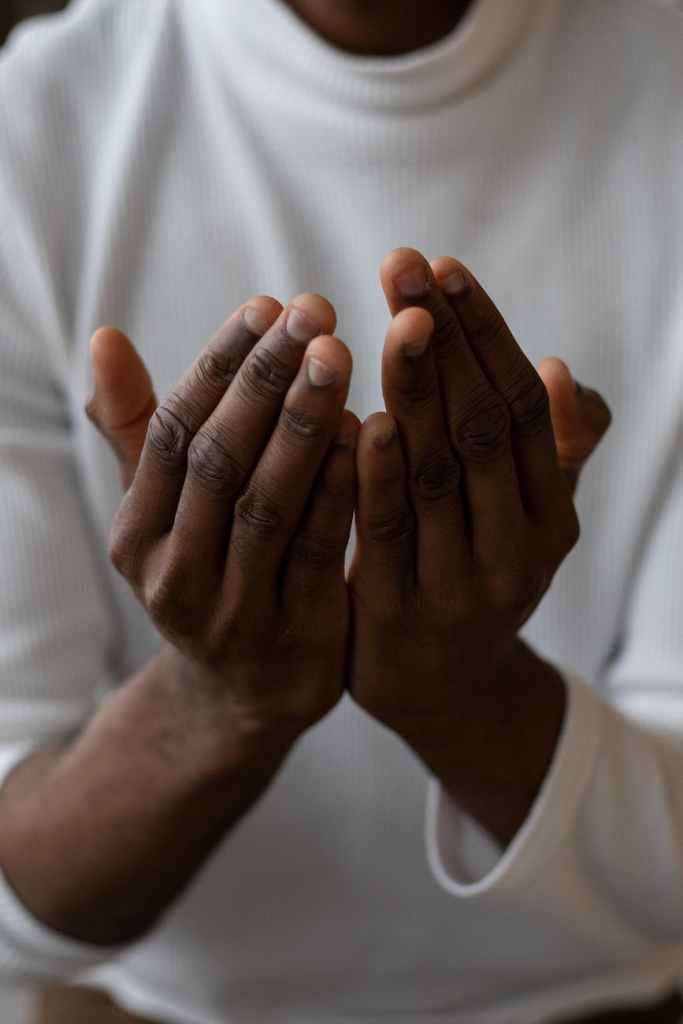
This week’s readings:
- Acts 3:13–15, 17–19
- Psalm 4:2, 4, 7–8, 9
- 1 John 2:1–5a
- Luke 24:35–48
What this week’s readings say to me:
This week’s readings say to me that they are about what it means for us to love God and what it means for God to love us. The first reading reminds us what can happen if we get caught up in the noise, the fear, and the intimidation of chaotic moments. It shows us what can happen if we let a herd mentality confuse our perceptions of what’s holy and what isn’t. The crucifixion is one event that happened in such a climate, the first reading reminds us. But the same passage also gives us Good News. It tells us we can acknowledge when our vision of what’s holy has been clouded, and we can ask the Holy Spirit to sweep the clouds away and help us to refocus our attention on the True Compass. The psalm promises that God won’t abandon us but will give us clarity and healing if we’re open to receiving these gifts.
The third reading says to me that to love means to give to and to receive from the Beloved. It means cooperating and sharing a common purpose. It says that love must be expressed with actions as well as words. It says love that meets these criteria is love of God.
The gospel reading calls attention to some additional characteristics of God’s love. God understands human nature better than any human, so God knows that pleasant surprises are good for relationships, including our relationship with God. Evidence of this knowledge is demonstrated in the way the newly resurrected Jesus enters into situations in which His first followers don’t expect Him to appear. Granted, these followers are surprised to see him largely because they’ve gathered with people who have seen His crucifixion, death and burial, but they might also be surprised because Jesus doesn’t knock on the door and wait for them to open it. I’m imagining He knows they wouldn’t have opened it if He had. They’re too scared of being arrested and meeting the same fate Jesus did. So He seems to simply appear “in their midst,” going around their fear and surprising them to give them what they need (Luke 24:36) — but not before He shows their intellect and their need for food some love. He appears in their midst after two of them have returned from a journey, and He has discussed with them what refers to Him in the Scriptures and then made himself “known to them in the breaking of bread” (Luke 24:35).
I also see this passage as a reminder that God shows Divine love by demonstrating that He knows we need each other. We have opportunities to be for one another a tangible connection to divine love. In this passage, the reports that two followers provide upon returning from the journey are one example of that connection. The other is what Jesus Himself does when he appears in the midst of the group. He points out to the gathering that he has “flesh and bones” he shows them his crucifixion wounds, and he asks for something to eat (Luke 24:39). Once he gives them a tangible connection to his resurrection, he reminds them of what he told them before his death. He reinforces that the physical and the mental/spiritual realms are intertwined and that both are sacred.
What someone else is sharing about this week’s readings:
Mary Erika Bolaños offers a reflection that reminds us Christ’s resurrection isn’t just an event that happened in the past.
Beyond this week’s readings:
I feel reminded by the first reading that the narrowness of my perspective, my weaknesses, and my sins won’t keep God’s ultimate plan from being fulfilled, but I still need to own my narrowness, my weaknesses, and my sins and resolve to work with the Divine Plan instead of against it. Being a conduit for this plan is how I can experience renewal now and in the future.
The psalm invites me to return to it again and again, praying with its words, asking God to help me make them my own and to live them.
The third reading reminds me to make sure my actions are consistent with what I’d like to think is important to me and with what I’d like to think my relationship with God is. It also reminds me to ask God for help with making sure that what matters to me is what matters to God.
The gospel reading reminds me that God embraces all of me — mind, body, and spirit.
Lord, help me to accept the gifts of that embrace so that I can live them and share them. Amen.
Work cited
Confraternity of Christian Doctrine, Inc. “3rd Sunday of Easter 14 April 2024: Readings at Mass.” The New American Bible, 2001. Universalis for Windows, Version 2.187, Universalis Publishing Ltd., 6 March 2024, https://universalis.com/n-app-windows.htm.








